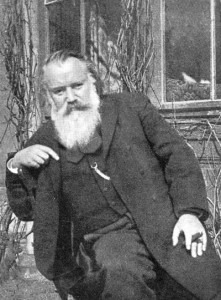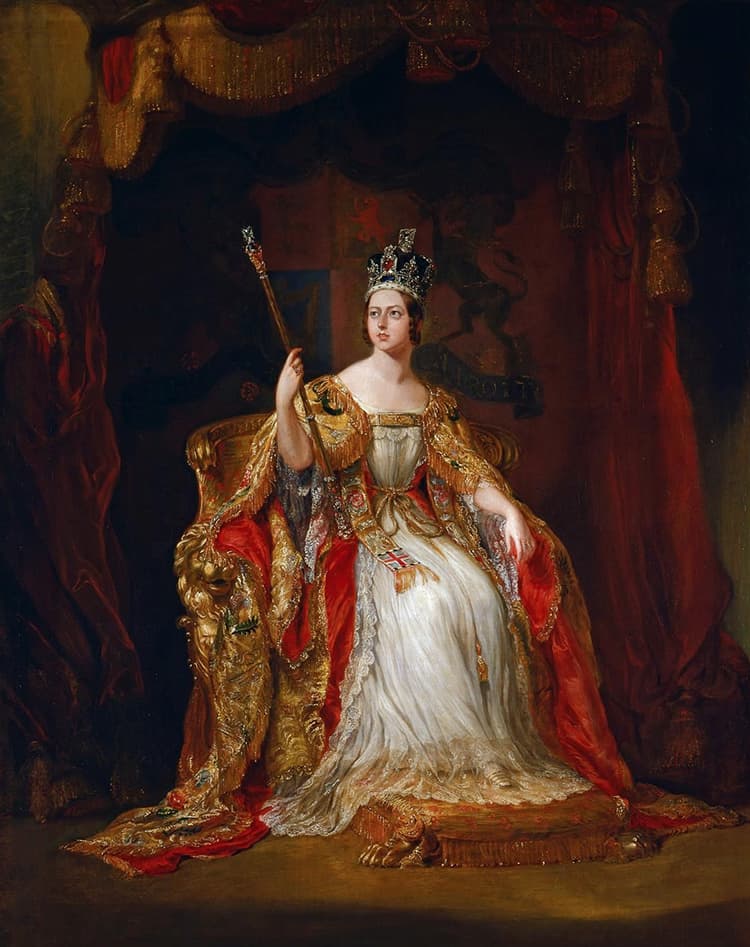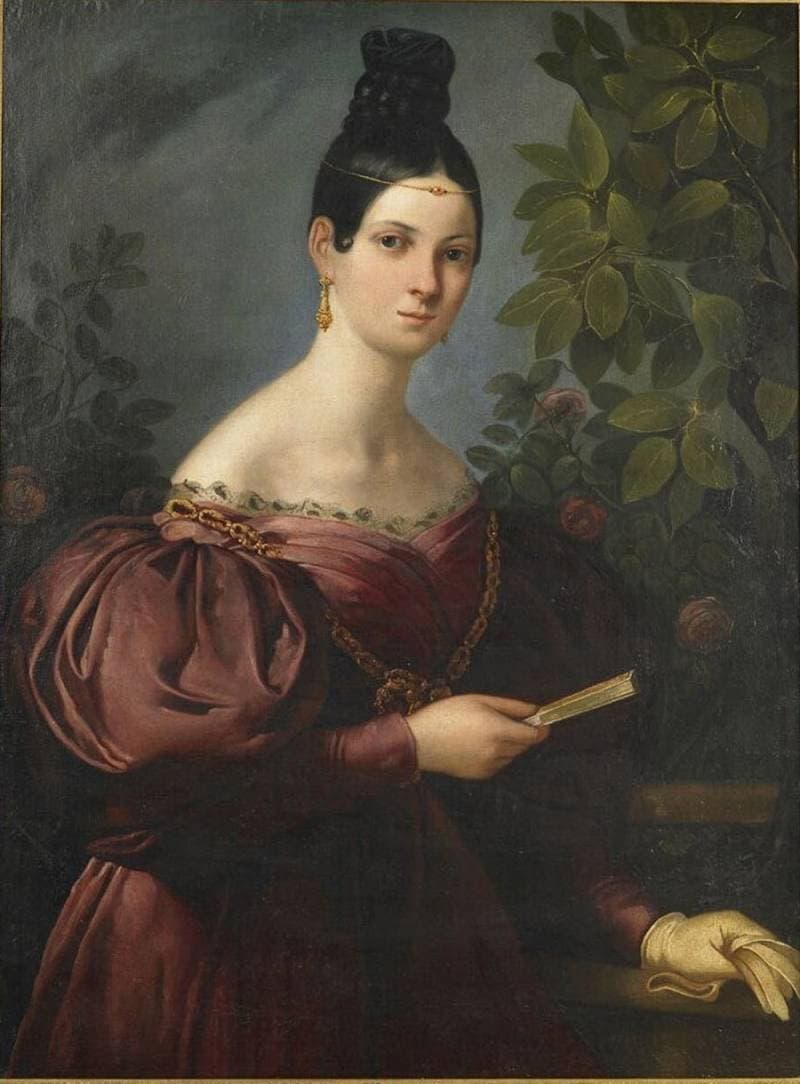
Brahms
Credit: http://cps-static.rovicorp.com/
 Cambridge University offered him an honorary Doctorate in Music in 1876, but required his presence at the ceremony. Brahms was mortified by the mere thought of having to cross the Channel, and once he became aware of the planned lavish festivities, he decided to stay home. 3 years later, the University of Breslau conferred upon Brahms the honorary degree of Doctor of Philosophy. The degree came with a rather pompous Latin inscription proclaiming Brahms as “the foremost composer of serious music in Germany.” Brahms was flattered and casually sent them a little thank-you note, saying that he would come to Breslau next year in hopes of enjoying a few “doctoral beers.” However, Bernhard Scholz, the Director of Music in Breslau made it clear that the university expected something a little bit more substantial. A “grander gesture” of thanks would be required, and no less than a freshly composed symphony would do the trick. Brahms was taken aback, and it took him more than a year to compose his doctoral thesis, the Academic Festival Overture. Scholz disliked the name and suggested “Viadrina” the Latin name of the River Oder, which flows through Breslau instead. Brahms thought about it for a second and then discarded the suggestion. And since Brahms had a rather wicked sense of humor, it was hardly a composition the University had expected. Instead of a symphony or grand choral work, Brahms provided a medley of student songs celebrating drinking and general rowdiness, and that included a fraternity initiation ballad! Brahms was mercilessly mocking the seriousness of the degree and those who had bestowed the honor upon him. There is no doubt that high administration—sitting in the front row at the premiere performance in January 1881—got the message!
Cambridge University offered him an honorary Doctorate in Music in 1876, but required his presence at the ceremony. Brahms was mortified by the mere thought of having to cross the Channel, and once he became aware of the planned lavish festivities, he decided to stay home. 3 years later, the University of Breslau conferred upon Brahms the honorary degree of Doctor of Philosophy. The degree came with a rather pompous Latin inscription proclaiming Brahms as “the foremost composer of serious music in Germany.” Brahms was flattered and casually sent them a little thank-you note, saying that he would come to Breslau next year in hopes of enjoying a few “doctoral beers.” However, Bernhard Scholz, the Director of Music in Breslau made it clear that the university expected something a little bit more substantial. A “grander gesture” of thanks would be required, and no less than a freshly composed symphony would do the trick. Brahms was taken aback, and it took him more than a year to compose his doctoral thesis, the Academic Festival Overture. Scholz disliked the name and suggested “Viadrina” the Latin name of the River Oder, which flows through Breslau instead. Brahms thought about it for a second and then discarded the suggestion. And since Brahms had a rather wicked sense of humor, it was hardly a composition the University had expected. Instead of a symphony or grand choral work, Brahms provided a medley of student songs celebrating drinking and general rowdiness, and that included a fraternity initiation ballad! Brahms was mercilessly mocking the seriousness of the degree and those who had bestowed the honor upon him. There is no doubt that high administration—sitting in the front row at the premiere performance in January 1881—got the message! Johannes Brahms: Academic Festival Overture, Op. 80




witty told story
Yes but it’s glorious, isn’t it!
I am in non-compliance (to use a politically popular term of the day) with your characterisation of Brahm’s “Academic Festival Overture” as “a medley of student songs celebrating drinking and general rowdiness” and by using those songs Brahms was “mercilessly mocking the seriousness of the degree”. Unless you can provide me with hard data where Brahms explicitly said this, I cannot agree.
That Brahms had an acidic, cynical sense of humour and did not suffer pomposity, haughtiness or fools easily is well documented. But hardly anyone was more serious about music than Johannes Brahms, not only Brahms the thinker but most especially, Brahms the composer. It is also errant to apply today’s perception of fraternities as only a place where irresponsible students and academic goofballs hold parties for the sole purpose of having fun and raising hell, then apply it to Brahm’s time. Drinking and carousing have always been a part of university student life, but traditionally, fraternities have stood for much more than just having fun. Grand, lofty and even sacred aspirations are also part of what a fraternity was (is) about. This was likely far more so during Brahms time than it is today (or at least how fraternities are perceived today).
Brahms may have used drinking songs in this work, but the music he creates using them, the tonal vernacular, the counterbalancing of light and dark episodes throughout the work endows this superb work with a depth and a beauty of spirit much deeper and fully worthy of a piece by Johannes Brahms, which is saying a great deal, indeed. Both lightness and darkness can be found in abundance in this work. In fact, the very same light-with-dark can be found in the text of the song “Gaudeamus igitur” itself, which is arguably, the primary theme in the “Academic Festival Overture”.
“Gaudeamus igitur” (so let us have fun)
‘So let us enjoy ourselves while we are young,
after a pleasant youth and an unpleasant old age,
The earth will have us.’
In fact, the original title of the song is:
“De Brevitate Vitae” (On the shortness of life)
The sardonic, dark humour found in the text is precisely what Brahms’ composed into “Academic Festival Overture” through his treatment of the melody, if not in the melody itself. If the above text is meant to be humorous at all, then only in a fatalistic, mocking manner, a dark expression of the reality of life and death that most youth are first confronted with as college students. It is most definitely not a typical, 3/4 time, om-pah-pah drinking song, the kind so often used and accompanied by lewd, silly and mindless lyrics. But the primary thrust of your article places it much closer to the latter than the former. One needs only to listen to hear the music speaks emotionally to something much deeper, more sinister and more profound than a mere “Verarschen” of the school’s prize committee by Brahms.
In the spirit of doing more than just criticising, allow me to finish with a constructive suggestion in the form of a quote from violin virtuoso, Isaac Stern: “Learning music by reading [ or writing] about it, is like trying to make love by mail.”
PGK